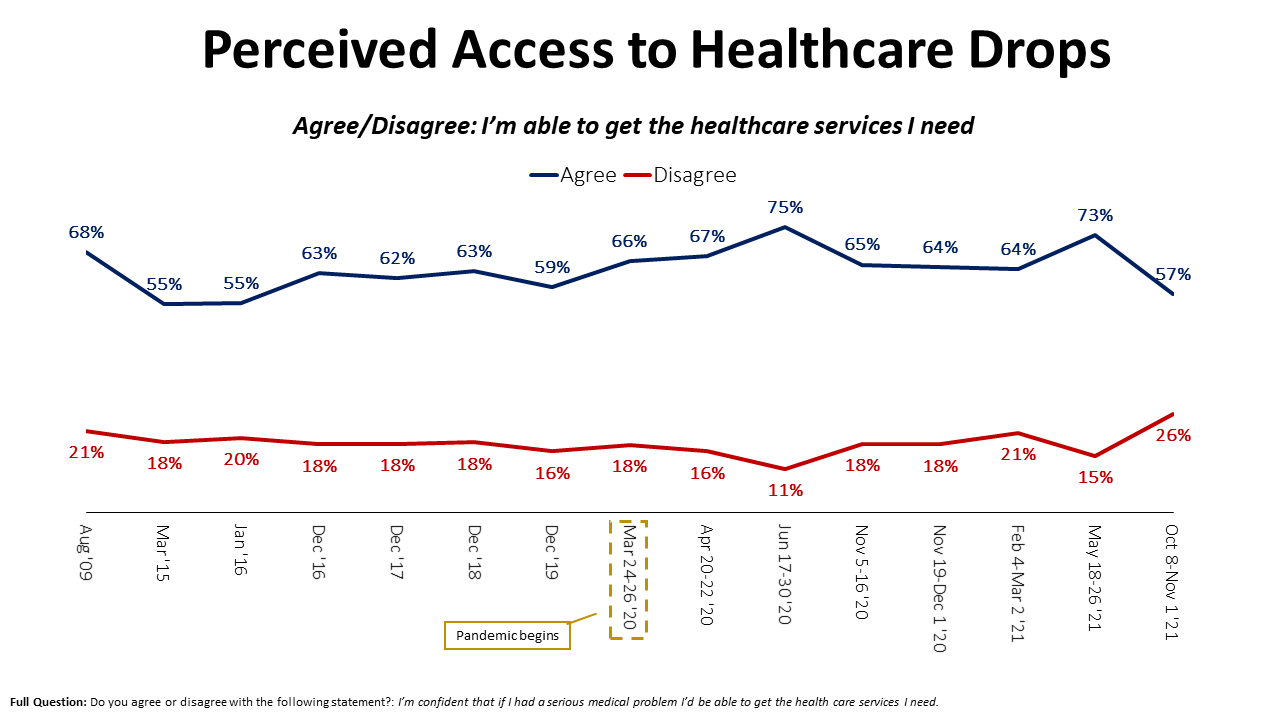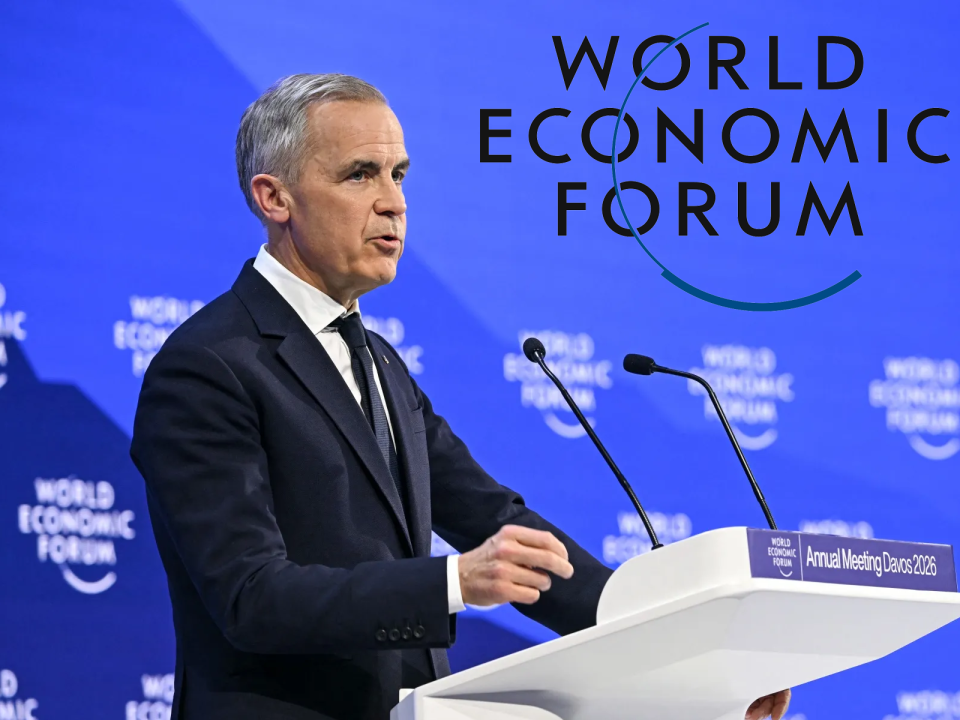
Canadians reported higher confidence in their ability to get treatment for serious medical problems during the COVID-19 pandemic than either before it, in 2019, or now, as the fourth wave is starting to recede. These findings are from an online survey conducted by INNOVATIVE from October 8th to November 1st, 2021, with a weighted sample size of 2,000 Canadian residents. A full methodology is provided in the appendix.
With the federal election behind us, INNOVATIVE has returned to tracking key attitudes related COVID and its impact on our daily lives.
The key development this month is that Canadians’ confidence in their ability to access medical care for a serious problem reached new highs during the COVID pandemic in 2020 and 2021. In December of 2019, 59% of respondents agreed that they could get the care they needed. By comparison, in March 2020 that number was 66%, in July 2020 it was 75%, and in May of 2021 it was 73%. Now, as the fourth wave of COVID in Canada begins to abate, the percentage of respondents who agree they can get the care they need is back down to 57%.

These findings are surprising and seem to run counter to the experience of those within the medical community. In an interview given to TVO in May 2021, Anthony Dale, president and CEO of the Ontario Hospital Association, reported: “We’re all relieved to see that [ICU occupancy declining], although it’s come at quite a cost, both in terms of human life disrupted and lives even lost because of COVID-19. But, also because of the many thousands of patients with other health conditions who have been unable to access the care they need throughout the last year-and-a-half.” Dale continued, “No matter how you look at it, the challenge to deal with it [the backlog] is on par with the challenge of fighting this pandemic”. That interview was given in May 2021, the same month that Canadians’ confidence in their ability to get the care they need was at, in our tracking, a near record high of 73% in agreement.
It’s noteworthy that the reality of patient backlogs and Canadians’ perceptions of their ability to access care they need seem so disconnected. One possible explanation is that during the height of the pandemic, the “serious medical problem” Canadians were thinking about most was COVID, and they were confident in the healthcare system’s ability to treat them for that disease.
Other findings include:
- COVID approval for provincial governments in Quebec, BC and Ontario is declining.
- While a plurality of Canadians think COVID restrictions are about right, the number who say restrictions are too tight is up while those who say too loose is down.
- While most Canadians (72%) still agree that COVID could come back if we don’t take special precautions, that number is down seven points from the summer.
- Social engagement is up slightly from the summer in Quebec and Ontario but are stable or lower in BC and Alberta which have had a tougher Wave 4.
- While perceptions of well-being and stress are fairly stable, measures of general health and mental health are the worst we have seen in the pandemic.
For more details on these topics and others, check out the full report.


































